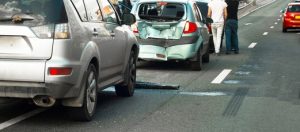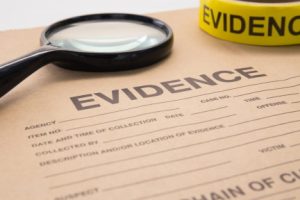Despite Birmingham featuring top of the crash for cash postcode league in 2016 it would appear that the scammers are still extremely active in the region with Birmingham again topping the league in 2017. We know from data compiled by the Insurance Fraud Bureau (IFB) that of the top 30 postcodes for crash for cash crimes in the UK, Birmingham provided 10 of these.
It will surprise many people to learn that, on the surface at least, lessons do not appear to have been learned from last year. At a time when the UK insurance industry and the government are looking to clamp down on fraudulent personal injury claims many would have expected more focus on areas such as Birmingham. However, while there is an awful lot going on under the surface these criminal gangs seem to have nerves of steel even when they are caught!
Fraudulent Crash For Cash Claims
The Birmingham regional post codes of Washwood Heath, Aston and Small Heath made up the top three worst post codes for fraudulent insurance claims. Joint fourth were Frizinghall and Manningham in the Bradford area with Cheetham Hill in Manchester taking sixth place. London, Oldham, Liverpool, Bolton, Sheffield and Wakefield made up the top nine area post codes using data obtained by the IFB.
It is unclear why, with the exception of London, all of the other postcodes are located in the North/Midlands. Whether the economic background of various regions in the North/Midlands has had any influence on fraudulent crash for cash claims is unclear but there is certainly a pattern. This pattern seems to have been rubberstamped by a survey from Aviva back in 2016 which confirmed that 25% of the insurance giant’s fraudulent crash for cash claims were from the Birmingham region. London has such a variation of affluent and struggling areas that it is perhaps no surprise to see some London postcodes on the list.
Fraudulent Personal Injury Claims
We know that crash for cash claims have been seen as easy pickings for the criminals in years gone by. It would be wrong to suggest that no progress has been made by the insurance companies but even using official IFB data there were in excess of 55,000 personal injury claims in the UK last year which were linked to scams. That is 150 fraudulent claims a day throughout the UK, or one every 10 minutes which perfectly puts this into perspective. These fraudulent claims are estimated to cost the UK insurance industry £340 million a year, much of which will eventually be passed on to law-abiding customers through no fault of their own.
We know that insurance companies across the UK have been investing millions of pounds into fraud detection systems. These figures may have seemed relatively large when they were announced but they are but a fraction of the £340 million which is been siphoned out of the insurance industry on an annual basis. Therefore, the reality is that the millions of pounds invested in these fraud detection systems is money well spent – assuming recent progress and successes can be repeated.
How To Spot A Potential Crash For Cash Scam
In our mind we can all probably think of some ways in which so-called “crash for cash” scams might appear obvious. However, we have some extremely simple tips for you to bear in mind in the event of a suspicious crash:-
 The individual or individuals involved in the “crash” appear suspiciously calm after what many would deem to be a harrowing experience. It is almost as if they have been through a similar event in the past?
The individual or individuals involved in the “crash” appear suspiciously calm after what many would deem to be a harrowing experience. It is almost as if they have been through a similar event in the past?
How many of us can reel off our insurance details after emerging from the shock of a car crash? Well, in many circumstances those involved in crash for cash schemes will already have their insurance details written down. Another tell-tale sign!
When the personal injury claim is received it seems to be very much at odds with what actually happened on the day. Do not fall into the trap of assuming that these injuries emerged in the aftermath of the “crash”, although in reality your insurance company will know all of the right questions to ask.
If everything seems to be organised and “too smooth”, giving you the impression you may have been targeted for a personal injury claim scam, note down as much information as possible. You may be able to catch out the fraudsters by taking photographs and even calling the police. It is easy to say we should collect as much information as possible after a crash but very often shock can kick in, and taking notes is the last thing on your mind.
What To Do If You Think You Have Been Targeted
Over the last few months we have covered an array of different topics relating to personal injury claims with car crashes by far and away the most common. Again, in hindsight there are probably a number of things that victims could have done at the time but in reality it is very difficult to think straight when concerned you may have injured somebody. However, if you are suspicious about an accident in which you were involved you should consider the following advice:-
Never admit liability for any accident at the scene. People are often dazed and maybe not thinking straight and while the third party may be looking to claim for personal injury, there are occasions where the innocent victim of the fraud has also been injured. Any admission of liability with witnesses will severely weaken your case if a claim for personal injury is pursued.
If you are suspicious then you should keep your thoughts to yourself and not alert the other driver about your concerns. Some crash for cash gangs are so confident in their ability to pull off these scams that they can often trip themselves up further down the line.
Where possible, ensuring not to antagonise the situation, take notes and photographs of the scene, those involved and witnesses. You may need to be discreet so as not to alert the “victim” but any evidence you can collate at the scene could be priceless further down the line. One further note of caution, “independent witnesses” have on occasion been planted by the criminal gangs to further strengthen their case. Be cautious!
You should obviously report any accidents to your insurance company as soon as possible together with any concerns regarding potential fraudulent claims. There is also a specific Insurance Fraud Bureau website with contact details allowing you to record your concerns and have them investigated.
Do Not Let Your Guard Down
As we touched on above, while there has been great progress made in the area of detecting fraudulent personal injury claims, these crimes are still costing the insurance company, and ultimately customers, millions of pounds a year. These postcode league tables are useful as an indicator but remember that fraudulent personal injury claims are occurring up and down the country.
While the insurance companies have invested millions of pounds in fraud detection systems they still depend to a great extent on feedback from the general public and victims of fraud. Ensure that any suspicions you have are relayed back to your insurance company and the IFB. In a worst-case scenario a personal injury claim will be investigated and if legitimate then a settlement will be discussed. However, alerting your insurance company to potential fraud could save you thousands of pounds and stop your insurance premiums from going through the roof.



